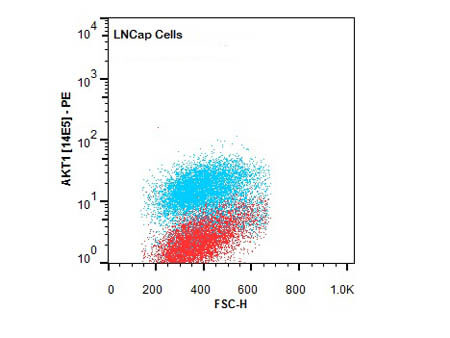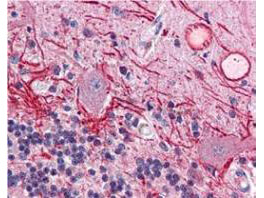Datasheet is currently unavailable. Try again or CONTACT US
AKT phospho S473 Antibody
Mouse Monoclonal 17F6.B11 IgG1 kappa
7 References
200-301-268S
200-301-268
25 µL
100 µg
Liquid (sterile filtered)
Liquid (sterile filtered)
WB, ELISA, IHC, IF, FC, Multiplex
Human, Mouse, Rat, Monkey
Mouse
Shipping info:
$50.00 to US & $70.00 to Canada for most products. Final costs are calculated at checkout.
Product Details
Anti-AKT pS473 (MOUSE) Monoclonal Antibody - 200-301-268
mouse anti-AKT pS473 Antibody, phospho AKT, RAC-PK-alpha, Protein kinase B, PKB, C-AKT, RAC-alpha serine/threonine-protein kinase, Proto-oncogene c-Akt, AKT1, AKT 1, AKT-1
Mouse
Monoclonal
IgG1
Target Details
AKT1 - View All AKT1 Products
Human, Mouse, Rat, Monkey
Phosphorylation
Conjugated Peptide
Anti-AKT pS473 (MOUSE) Monoclonal Antibody was produced by repeated immunizations with a synthetic peptide corresponding to residues surrounding S473 of human AKT1 protein, followed by hybridoma development.
Anti-AKT pS473 Monoclonal Antibody was purified from concentrated tissue culture supernate by Protein A chromatography. This phospho specific monoclonal antibody is specific for phosphorylated human and mouse AKT protein at S473. A BLAST analysis was used to suggest cross-reactivity with AKT pS473 from human, mouse, rat and chimpanzee sources based on 100% homology with the immunizing sequence. Cross-reactivity with AKT from other sources has not been determined. Cross-reactivity with AKT2 and AKT3 has not been determined.
Application Details
ELISA, IF, IHC, WB, Multiplex
FC
- View References
Phospho AKT antibody is tested in ELISA, immunofluorescence, immunohistochemistry, flow cytometry, and western blotting. Expect a band approximately 56 kDa in size corresponding to phosphorylated AKT protein by western blotting in the appropriate cell lysate or extract. This phospho-specific monoclonal antibody reacts with human and mouse AKT pS473 and shows minimal reactivity by ELISA against the non-phosphorylated form of the immunizing peptide. Specific conditions for reactivity should be optimized by the end user. For immunohistochemistry use formalin-fixed paraffin-embedded sections. No pre-treatment of sample is required.
Formulation
1.0 mg/ml by UV absorbance at 280 nm
0.02 M Potassium Phosphate, 0.15 M Sodium Chloride, pH 7.2
0.01% (w/v) Sodium Azide
None
Shipping & Handling
Dry Ice
Store Anti-AKT pS473 (MOUSE) Monoclonal Antibody at -20° C prior to opening. Aliquot contents and freeze at -20° C or below for extended storage. Avoid cycles of freezing and thawing. Centrifuge product if not completely clear after standing at room temperature. This product is stable for several weeks at 4° C as an undiluted liquid. Dilute only prior to immediate use.
Expiration date is one (1) year from date of receipt.
AKT phospho S473 is a component of the PI-3 kinase pathway and is activated by phosphorylation at Ser 473 and Thr 308. AKT is a cytoplasmic protein also known as AKT1, Protein Kinase B (PKB) and rac (related to A and C kinases). AKT is a key regulator of many signal transduction pathways. AKT Exhibits tight control over cell proliferation and cell viability. Overexpression or inappropriate activation of AKT is noted in many types of cancer. AKT mediates many of the downstream events of PI 3-kinase (a lipid kinase activated by growth factors, cytokines and insulin). PI 3-kinase recruits AKT to the membrane, where it is activated by PDK1 phosphorylation. Once phosphorylated, AKT dissociates from the membrane and phosphorylates targets in the cytoplasm and the cell nucleus. AKT has two main roles: (i) inhibition of apoptosis; (ii) promotion of proliferation. Anti-AKT pS473 (MOUSE) Monoclonal Antibody is ideal for investigators involved in Cell Signaling, Cancer, Neuroscience, Signal Transduction research.
Asirvatham AL et al. (2021). Role of A-kinase anchoring proteins in cyclic-AMP-mediated Schwann cell proliferation. Cell Signal.
Applications
Undefined
Vasudevan S et al. (2021). Drug-Induced Resistance and Phenotypic Switch in Triple-Negative Breast Cancer Can Be Controlled via Resolution and Targeting of Individualized Signaling Signatures. Cancers (Basel).
Applications
FC, FACS, FLOW
Maerz et al. (2019). Pharmacological cholesterol depletion disturbs ciliogenesis and ciliary function in developing zebrafish. Communications Biology
Applications
WB, IB, PCA
Kalebic N, Gilardi C, Stepien B, et al. (2019). Neocortical Expansion Due to Increased Proliferation of Basal Progenitors Is Linked to Changes in Their Morphology. Cell Stem Cell.
Applications
IF, Confocal Microscopy
Sato et al. (2017). Sodium butyrate enhances the growth inhibitory effect of sunitinib in human renal cell carcinoma cells. Oncology Letters
Applications
WB, IB, PCA
Melchior, B et al. (2014). Distinctive subcellular Akt-1 responses to shear stress in endothelial cells. Journal of Cellular Biochemistry
Applications
IHC, ICC, Histology
Sha W et al. (2012). Loss of PPARγ expression by fibroblasts enhances dermal wound closure. Fibrogenesis Tissue Repair.
Applications
IHC, ICC, Histology
This product is for research use only and is not intended for therapeutic or diagnostic applications. Please contact a technical service representative for more information. All products of animal origin manufactured by Rockland Immunochemicals are derived from starting materials of North American origin. Collection was performed in United States Department of Agriculture (USDA) inspected facilities and all materials have been inspected and certified to be free of disease and suitable for exportation. All properties listed are typical characteristics and are not specifications. All suggestions and data are offered in good faith but without guarantee as conditions and methods of use of our products are beyond our control. All claims must be made within 30 days following the date of delivery. The prospective user must determine the suitability of our materials before adopting them on a commercial scale. Suggested uses of our products are not recommendations to use our products in violation of any patent or as a license under any patent of Rockland Immunochemicals, Inc. If you require a commercial license to use this material and do not have one, then return this material, unopened to: Rockland Inc., P.O. BOX 5199, Limerick, Pennsylvania, USA.

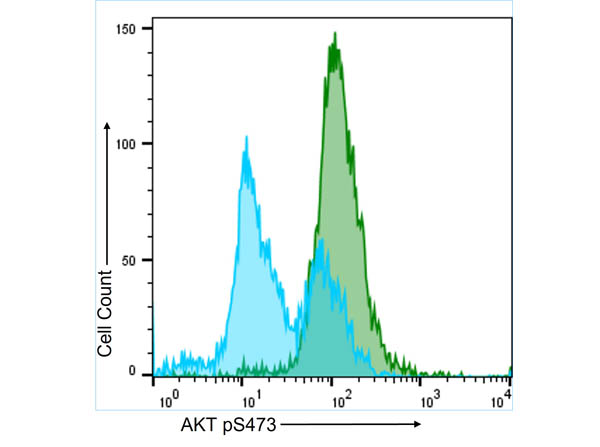
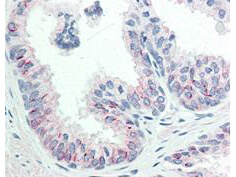
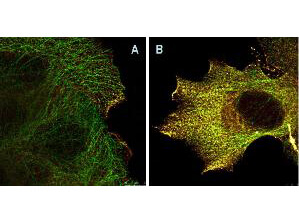
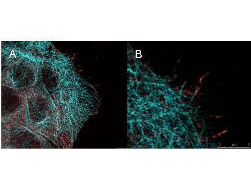
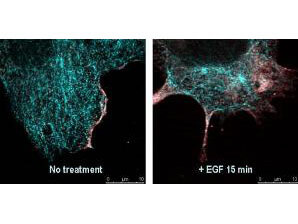
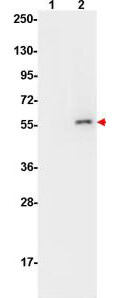
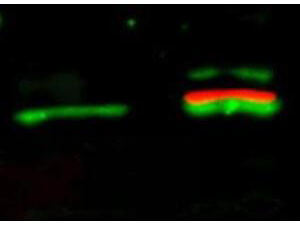
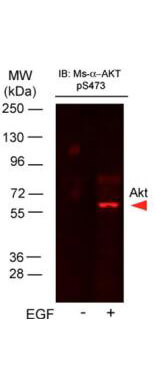
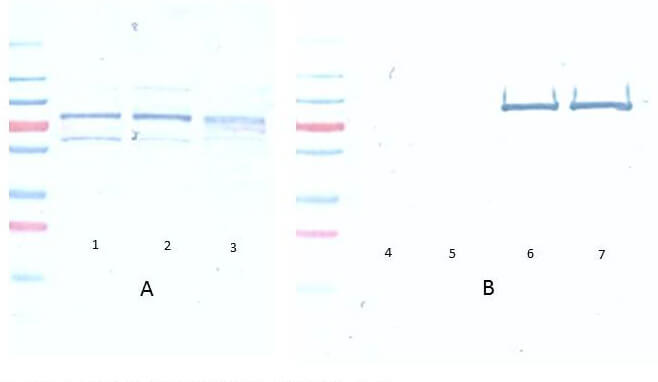
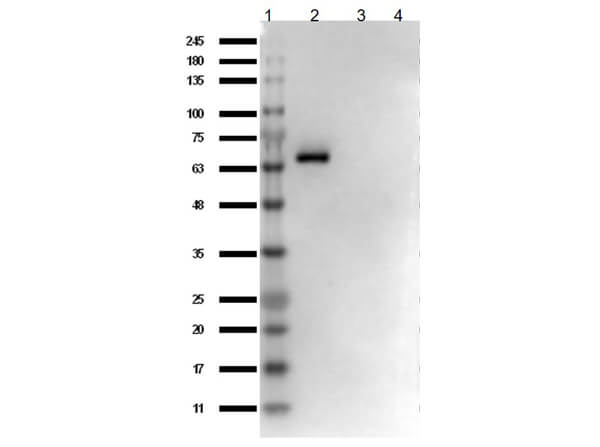
Human_Recombinant_Protein_1_SDS_4x3.jpg)
